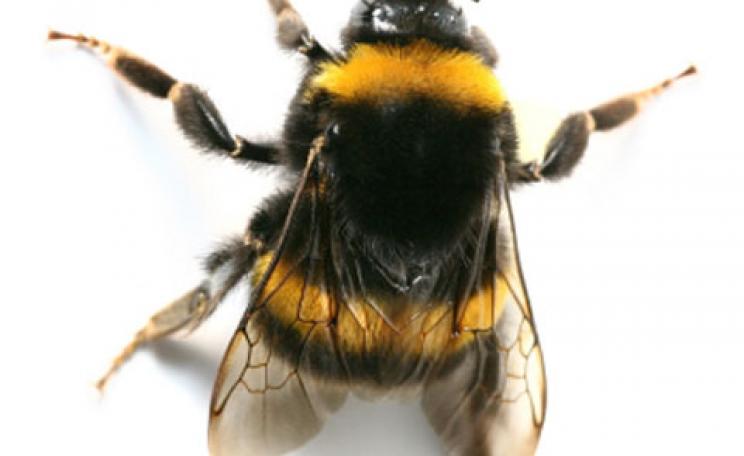High losses have been blamed on disease, bad weather and poor quality of foraging due to habitat loss
Beekeepers lost one in six of their honey bee hives over the winter, according to the British Beekeepers Association (BBKA), which has 15,000 members across the country.
The nationwide figure is slightly improved on the 19 per cent losses suffered in 2008 and considerably less than the 30 per cent losses from 2007. However, the BBKA said it was still well above the acceptable losses of between 7 and 10 per cent.
It blamed disease, bad weather and poor quality of foraging due to habitat loss for the continued rate of honey bee deaths.
US beekeepers reported an even higher loss of 29 per cent over the winter.
Francis Ratnieks, professor of apiculture at Sussex University, said the cold winter on its own would not necessarily have been a problem as long as the bees had good food supplies. However, he said the varroa mite continued to be a problem, infesting honey bee colonies across the UK.
Higher losses in North
The BBKA's nationwide figure also masked a large regional disparity. The north of England reported losses of 26 per cent, while hive owners in the south west saw losses of only 12 per cent.
Ben Hopkinson, from the Alnwick Association of the BBKA, put the heavy losses in the region down to a combination of a harsh winter and bad summer last year, poor foraging and the 'devastating' affect of the parasitic varroa mite.
Professor Ratnieks said continued high losses could start to hit smaller beekeepers. According to a recent National Bee Unit survey, 56 per cent of beekeepers in England and Wales have less than four hives.
'It is more or less possible to double your hives each year, so I would say that we would need an average 50 per cent loss before the losses were unsustainable. But large losses will make it hard for beekeepers with just one or two hives, who may lose all their hives,' he said.
| READ MORE... | |
 |
NEWS Heavy bee colony losses in US could lead to price rise Beekeepers in US blame weather and starvation for another winter of heavy colony losses, which is likely to lead to rises in the cost of pollination |
 |
NEWS Extinct bumblebee will return to Britain in 2010 Short-haired bumblebee to be brought back from New Zealand and reintroduced into Kent |
 |
NEWS Loss of forage biggest long-term threat to bees Intensification of farming and subsequent decline in food sources rather than pesticides or disease seen as biggest threat to honey bees |
 |
NEWS ANALYSIS Agri-chemical companies are both breeding and killing bees Agri-chemical companies like Syngenta don’t just make the chemicals that have been blamed for the decline in bees; they also breed the bees that are being used as a replacement for wild pollinators |
 |
HOW TO MAKE A DIFFERENCE How to be an urban beekeeper You don't need a smallholding and a meadow to be a budding apiarist - a few sensible precautions will let you fight honeybee decline with a hive in your own backyard |








